Research Team
Charles Lee (he/him), Ph.D., F.A.C.M.G., Principal Investigator
Scientific Director and Professor, The Jackson Laboratory for Genomic Medicine

Dr. Lee is an established presence in the field of genetics and genomics and has received several accolades for his work on structural variation including, the 2008 Ho-Am Prize in Medicine, the 2012 Chen Global Investigator Award, and the 2014 Thomson Reuters Citation Laureate. Along with his professional expertise, Dr. Lee has a passion for collaboration and discourse. He currently serves as President of the Human Genome Organization (HUGO). At HUGO, Dr. Lee has expanded the focus beyond the scientific findings related to the human genome into the nuanced territory of the ethical, legal, and social implications of human genome projects. He has worked on several advisory boards and committees, including the International 1000 Genomes Project, the Human Genome Structural Variation Consortium, and the Roundtable on Genomics and Precision Health.
Scott Roberts (he/him), Ph.D., Principal Investigator
Professor, Department of Health Behavior & Health Education, University of Michigan School of Public Health
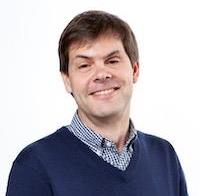
Scott Roberts, PhD, is Professor of Health Behavior and Health Education at the University of Michigan School of Public Health (UM SPH). Dr. Roberts' research addresses ethical and psychosocial issues involved in disclosing genetic test information. His work in this area has been continuously funded by the National Institutes of Health (NIH) for the past 20 years, and Dr. Roberts has authored over 130 peer-reviewed publications. He has studied participants’ motivations and interests in genetic testing, the psychological impact of providing risk disclosure, and health behavior changes prompted by risk assessment. His work in this area has focused primarily on genetic testing for Alzheimer’s disease and hereditary cancer syndromes, as well as direct-to-consumer genetic testing. At UM SPH, he also directs an NIH-funded T32 research training program for scholars working on the ethical, legal, and social implications of genomics.
Kunal Sanghavi (he/him), M.B.B.S., M.S., C.G.C., Co-Investigator
Senior Program Manager, Genetic Counseling, The Jackson Laboratory for Genomic Medicine

Mr. Sanghavi has forged a path of leadership in the genetic counseling and research community alike. He serves on ethics committees at Human Genome Organization (HUGO) and American College of Genetics and Genomics (ACMG). He is the President of the Connecticut Genetic Counseling Association (CTGCA) and past President of the New England Regional Genetics Group (NERGG). Mr. Sanghavi has developed and published projects on genetic service delivery, community stakeholders engagement, telemedicine, and the ethical, legal, and social implications (ELSI) of population genomic testing. In addition, he led the voluntary workplace genomic testing research project identifying employee perceptions that laid the groundwork for the federally funded project. He and his team provide overall leadership and project management for the workplace genetic testing study.
William Gregory Feero (he/him), M.D., Ph.D., Co-Investigator
Professor, Department of Community and Family Medicine, Dartmouth Geisel School of Medicine
Research Director, Maine Dartmouth Family Medicine Residency
Associate Editor, Journal of the American Medical Association

Dr. Feero works within the intersection of family medicine and human genetics. Formerly he was chief of the Genomic Healthcare Branch of the National Human Genome Research Institute, whose mission is to bring genomic discoveries into healthcare. Currently he serves as co-chair of the National Academies of Science, Engineering, and Medicine Roundtable on Genomics and Precision Health, and is the genomics editor for the Journal of the American Medical Association. He has developed and published projects pertaining to consumer genomic testing, precision medicine, and the ethical, legal, and social implications (ELSI) of voluntary workplace genomic testing.
Debra Mathews (she/her), Ph.D., M.A., Co-Investigator
Associate Professor, Department of Genetic Medicine, Johns Hopkins University School of Medicine
Assistant Director for Science Programs, Berman Institute of Bioethics, Johns Hopkins University School of Medicine

Dr. Mathews is the Assistant Director for Science Programs for the Johns Hopkins Berman Institute of Bioethics, and an Associate Professor in the Department of Genetic Medicine, Johns Hopkins School of Medicine. Her academic work focuses on ethics and policy issues raised by emerging technologies, with particular focus on genetics, stem cell science, neuroscience, synthetic biology, and artificial intelligence. In addition to her academic work, Dr. Mathews has spent time at the Genetics and Public Policy Center, the US Department of Health and Human Services, the Presidential Commission for the Study of Bioethical Issues, and the National Academy of Medicine working in various capacities on science policy. Dr. Mathews earned her PhD in genetics from Case Western Reserve University, as well as a concurrent Master’s in bioethics. She completed a Post-Doctoral Fellowship in genetics at Johns Hopkins, and the Greenwall Fellowship in Bioethics and Health Policy at Johns Hopkins and Georgetown Universities.
Anya Prince (she/her), J.D., M.P.P., Co-Investigator
Associate Professor of Law, University of Iowa College of Law

Professor Prince has vast experience in topics at the intersection of genetics and the law. Her research has delved into genetic discrimination and privacy, the relationship between clinical and research genetics, and the ethical, legal, and social implications (ELSI) of genomic testing. Her excellence in research is emphasized by her recent five-year Pathway to Independence Award which examined how life, long-term care, and disability insurers use genetic information. In addition, Professor Prince is a member of the University of Iowa Genetics Cluster, an interdisciplinary coalition that works to advance genetic research and personalized medicine to positively impact public health.
Kayte Spector-Bagdady (she/her), J.D., M.B.E., Co-Investigator
Assistant Professor of Obstetrics and Gynecology, University of Michigan Medical School
Associate Director, Center for Bioethics and Social Sciences in Medicine, University of Michigan

Professor Kayte Spector-Bagdady is a lawyer/bioethicist whose research focuses on the law and ethics of research with health data and human biospecimens. She is Associate Director of the Center for Bioethics and Social Sciences in Medicine (CBSSM), a clinical ethicist, and Chair of the U-M Research Ethics Committee. She is on the Board of Directors for the American Society of Bioethics & Humanities and is a former Associate Director for Obama's Presidential Commission for the Study of Bioethical Issues.
Wendy R. Uhlmann (she/her), M.S., C.G.C., Co-Investigator
Senior Genetic Counselor/Clinic Coordinator, Medical Genetics Clinic, University of Michigan
Clinical Professor, Departments of Internal Medicine and Human Genetics, University of Michigan
Faculty, Center for Bioethics and Social Sciences in Medicine, University of Michigan
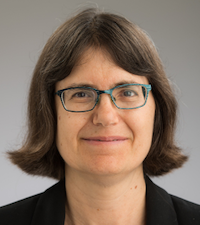
Ms. Uhlmann is a leader in the field of genetic counseling and has worked in adult, cancer and prenatal genetics clinics. She has served as Co-Investigator on multiple studies focusing on the impacts of genetic testing, including the REVEAL and PGEN studies, and written articles about ethical and other issues raised by predictive genetic testing for neurogenetic conditions. Ms. Uhlmann is a co-editor of both editions of A Guide to Genetic Counseling, used internationally in genetic counseling graduate programs. She served as President of the National Society of Genetic Counselors (NSGC), on the Board of Directors of the Genetic Alliance and will serve on the Board of Directors of the American Society of Human Genetics starting in January 2022. In recognition of her leadership contributions in NSGC, Ms. Uhlmann received the Regional Leadership Award, Outstanding Volunteer Award, and the Natalie Weissberger Paul National Lifetime Achievement Award.
Veda Giri (she/her), M.D., Co-Investigator
Professor of Internal Medicine (Medical Oncology), Division Chief, Clinical Cancer Genetics, Director, Cancer Genetics and Prevention Program, Director, Early Onset Cancer Program, Yale University

Veda N. Giri, M.D., is a medical oncologist with specialization in clinical cancer genetics. Dr. Giri is Division Chief of Clinical Cancer Genetics for Yale Cancer Center and Smilow Cancer Hospital and Assistant Director of Clinical Cancer Genetics for Yale Cancer Center, where she leads an integrated and comprehensive effort in cancer genetic evaluation to inform precision medicine, tailored cancer screening, and hereditary cancer risk. She is also Director of the Early Onset Cancer Program. In 2023 she was named a Fellow of the American Society of Clinical Oncology (FASCO). Dr. Giri's research portfolio includes population science studies focused on genetic evaluation of cancer risk, disparities in access to genetic testing and genetic counseling, and implementation research. She has led She has led numerous studies to advance the field of genetic counseling and genetic testing for inherited prostate cancer. Dr. Giri started the first Men’s Genetic Risk Clinic in the US in 2014 focused on genetic evaluation of inherited prostate cancer in the setting of multidisciplinary care. Dr. Giri also co-chaired the 2017 and 2019 Philadelphia Prostate Cancer Consensus Conferences that addressed development of comprehensive frameworks for genetic evaluation and implementation of genetic testing for prostate cancer. She is the Principal Investigator of multiple grant-funded prostate cancer genetic evaluation studies spanning genetic counseling, genetic testing, disparities, behavioral science, and implementation research. As leader of clinical cancer genetics, Dr. Giri plans to expand population science studies across cancer populations and in the community setting. Dr. Giri received her medical degree from Sidney Kimmel Medical College (previously Jefferson Medical College) and proceeded to complete her residency in Internal Medicine and fellowship in Hematology-Oncology at the University of Michigan. She then completed advanced training in molecular cancer genetics and cancer risk assessment at Fox Chase Cancer Center. She also has a certification in cancer risk assessment from City of Hope Comprehensive Cancer Center. Dr. Giri currently serves on several national committees including the NIH PDQ® Cancer Genetics Editorial Board, ASCO Evidence-Based Medicine Committee, ASCO Cancer Care Delivery Council, ASCO Health Equity and Outcomes Committee, and ASCO Coverage and Reimbursement Steering Committee contributing expertise in cancer risk assessment and genetics at the national level.
Rebecca Ferber (she/her), M.P.H., Project Manager
Program Manager, ELSI Research Training Program, University of Michigan

Ms. Ferber is a Research Area Specialist with years of experience in coordination and project management. Among the current projects Ms. Ferber helps to manage, she coordinates the University of Michigan's Training Program in ELSI Research. In 2013, she earned her degree from the University of Michigan School of Public Health, specializing in health behavior and health education. Recently she played an instrumental role in coordinating the REVEAL-SCAN study, a study that examined the impact of amyloid PET brain scan results on psychological, behavioral, and memory analysis in those with increased risk for Alzheimer’s disease.
Nicole Crumpler (she/her), M.S., M.B.A., Research Assistant
Laboratory Manager, Clinical Cancer Genetics Program, Jefferson Health
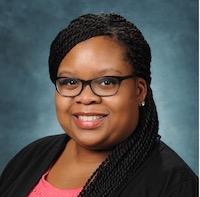
Ms. Crumpler is a graduate of John’s Hopkins University with a MS/ MBA in Biotechnology. As a team member of the Clinical Cancer Genetics Program, she serves a vital role in managing various research studies focusing on prostate cancer risk, genetic assessment, screening and prevention. Her role spans from laboratory to project management which includes, study regulatory preparation, patient samples collection, assay development, and data analysis.
Kerry Ryan (she/her), M.A., Research Associate
Research Associate, Center for Bioethics and Social Sciences in Medicine, University of Michigan

Ms. Ryan has coordinated numerous projects while at the Center for Bioethics and Social Sciences in Medicine. She has been part of projects with topics spanning from equity in medicine, patient therapeutic perceptions, health data sharing, and the communication of genomic results. Her extensive expertise includes coordinating, executing, and analyzing qualitative data from focus groups, interviews, and surveys.
Betty Cohn (she/her), M.B.E, Research Assistant
Research Assistant, Johns Hopkins Berman Institute of Bioethics

Ms. Cohn is a recent graduate of the Johns Hopkins Master of Bioethics
program and already carving out a path in bioethical research. Throughout
her graduate degree her research focused on ELSI concerns, including
contributing to research on genetics and genomics guidelines and policies
in Africa as well as completing her thesis on the ethical implications of
direct-to-consumer genetic ancestry testing.
Alyx Vogle (she/hers), M.S., C.G.C., Brigham and Women's Hospital

Ms. Vogle graduated from Massachusetts General Hospital's Institute of Health Professions (MGH IHP) with a Master of Science in genetic counseling. During her time at MGH IHP, she served as the representative for her cohort and Vice President of the Student Government Association. Her continued commitment to leadership activities is exemplified by the Student Excellence in Leadership award she was granted at the end of her term at MGH IHP. She previously worked on basic science research at Rush University and the University of Chicago.
Elizabeth Charnysh, M.S., C.G.C.
Clinical Research Project Manager, The Jackson Laboratory

Ms. Charnysh is a certified genetic counselor. She earned her MS in Human Genetics from the Joan H. Marks Graduate Program in Human Genetics at Sarah Lawrence College in 2019. She previously worked as a Genetic Counselor II in the Smilow Cancer Genetics and Prevention Program at Yale-New Haven Health until joining The Jackson Laboratory in 2023. Since then Elizabeth has led the implementation of research protocols for the INSIGHT @ Work project, served as project manager, and contributed to study design and instrument development, recruitment, deliberative workshop coordination, qualitative interviewing and analysis, and writing/dissemination.
Katherine Hendy, M.A., Ph.D.
Research Fellow, University of Michigan, Eisenburg Family Depression Center

Dr. Hendy is a postdoctoral fellow in the School of Public Health at the University of Michigan and a former ELSI T-32 fellow. Dr. Hendy is a medical anthropologist and science studies scholar with expertise in qualitative research methods and pharmacogenomics. Her ethnographic research spans genomics and psychiatry, social justice and cannabis, and the medicalization of psychedelics. As part of the INSIGHT @ Work study, she has helped to collect and analyze qualitative data and contributed to dissemination.
Sarah McCain, M.P.H.
Project Manager, University of Michigan School of Public Health

Ms. McCain recently graduated from the University of Michigan School of Public Health, specializing in Health Behavior and Health Education. Previously, she was a research assistant at the Michigan Alzheimer’s Disease Research Center, collecting feedback from participants about their experiences with the return of their cognitive research results. Ms. McCain is a Research Area Specialist in the Roberts Research Group, managing the multiple projects the group is involved in.
Alex McClellan, M.S., C.G.C.
Clinical Research Project Manager, The Jackson Laboratory

Alex McClellan is a licensed and certified genetic counselor who obtained her Master’s in Genetic Counseling from the Icahn School of Medicine at Mount Sinai in 2019. For the last four and a half years, she provided cancer genetic counseling services as a Genetic Counselor II in the Smilow Cancer Genetics and Prevention Program at Yale-New Haven Health. She is passionate about progressing and contributing to the larger genetic counseling field and enjoys volunteering with the Accreditation Council for Genetic Counseling (ACGC), the National Society of Genetic Counselors (NSGC), the Connecticut Genetic Counselors’ Association (CTGCA), and the genetic counseling program at Bay Path University. Alex has recently joined the team at JAX as a Clinical Research Project Manager.
Advisory Board
Kyle Brothers (he/him), M.D., Ph.D.
Endowed Chair of Pediatric Clinical and Translational Research, Department of Pediatrics, University of Louisville

Dr. Brothers is an Associate Professor of Pediatrics and the Endowed Chair for Pediatric Clinical and Translational Research at the University of Louisville, where he directs the Division of Pediatric Clinical and Translational Research. Dr. Brothers is a pediatrician and bioethicist who conducts qualitative research examining the impact of emerging clinical interventions for children and their families. Dr. Brothers is a practicing primary care pediatrician and serves as a clinical ethics consultant at Norton Children's Hospital in Louisville, Kentucky.
Ellen Wright Clayton (she/her), M.D., J.D.
Craig-Weaver Professor of Pediatrics, Center for Biomedical Ethics and Society, Vanderbilt University Medical Center
Professor of Health Policy, Center for Biomedical Ethics and Society, Vanderbilt University Medical Center
Professor of Law, Vanderbilt University School of Law
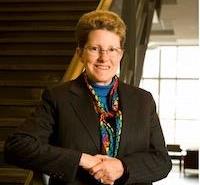
Professor Clayton is a world-renowned leader in the areas of ethical, legal, and social issues raised by genetics research and its translation to clinical care. She currently serves as co-Principal Investigator on Genetic Privacy and Identity in Community setting, which examining these issues through a broadly transdisciplinary lens. Professor Clayton has worked on policy statements and participated in policy debates. She had previously been an advisor to the National Institutes of Health and is an elected member of the National Academy of Medicine, where has served in numerous leadership roles, most recently as Co-Chair of the Report Review Committee. She is also an elected Fellow of the American Academy for the Advancement of Science.
Patricia Deverka (she/her), M.D., M.A., M.S.
SVP, Commercial Strategy and Market Access, Veranex
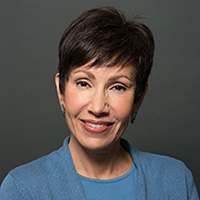
Dr. Deverka has worked in the fields of health economics and outcomes research in both non-profit and for-profit settings as a researcher, educator, consultant, and department head. She has extensive experience with drug and diagnostic product development, reimbursement planning, cost-effectiveness analysis, and bioethical issues surrounding the use of new technologies. While working in academia and several non-profit firms, she has participated in numerous federally-funded studies to evaluate policy barriers to clinical integration of new genomic technologies, as well as methods for engaging patients and other stakeholders in clinical research. She is a member of the NHGRI’s Genomic Medicine Working Group and National Advisory Council for Human Genome Research.
Thomas P. Ellis (he/him), M.B.A., C.C.P., P.H.R.
Vice President, Total Rewards & HR Technology Methodist Le Bonheur Healthcare

Mr. Ellis has more than a decade of experience in the realm of human
resources. Mr. Ellis worked in human resources for multiple nonprofit
organizations. In his current role, he works to promote the overall
well-being of The Jackson Laboratory employees. Most recently, he led the
formation of the employee health care and retirement plans.
Aaron Goldenberg (he/him), Ph.D., M.P.H.
Associate Professor & Vice Chair, Department of Bioethics, Case Western Reserve University
Co-Director, Center for Genetic Research Ethics and Law, Case Western Reserve University
Co-Director, PhD in Bioethics Program, Case Western Reserve University

Dr. Aaron Goldenberg is Vice-Chair and Associate Professor in the Department of Bioethics at Case Western Reserve University School of Medicine. He is also the Research Director for the Department and Co-Director of the Case Western Center for Genetic Research Ethics and Law. Since joining the faculty at Case Western Reserve University, Dr. Goldenberg’s work has focused on the ethical, legal, and social implications of genetics and genomics in clinical and public health settings. His research program has been grounded by a number of major project areas, including: 1) ethical implications of expanding newborn screening programs; 2) storage and use of perinatal and pediatric biological specimens for future research; 3) diversity in genetic research, including the implications of gene-environment interactions for racial/ethnic minorities and other communities experiencing health disparities. In addition to his scholarly initiatives, Dr. Goldenberg Co-Charis the Bioethics and Legal Workgroups for the Newborn Screening Translational Research Network and Legal and Legislative Workgroup for the American Public Health Laboratory Association. He is also a member of the Institutional Review Board (IRB) for the National Institutes of Health All of US Research Program.
Susan Mockus (she/her), Ph.D., M.B.A
Director of Corporate Strategy & Business Development, Precision Biomarker Laboratories, Cedars-Sinai

Dr. Mockus has over fifteen years of experience in life sciences, with a specialty in the commercialization of innovative, early-stage products from academic labs and non-profit organizations. Under her vision and leadership, The Jackson Laboratory commercialized the lab’s first software product, JAX-CKB, which is a cancer bioinformatics platform used by translational researchers, diagnostic labs, and oncologists across the globe. She currently directs a new endeavor in next-generation clinical proteomics at Cedars-Sinai. Her technical areas of expertise include genomics, proteomics, and interpretation of big data. Dr. Mockus received her Ph.D. from Wake Forest University, did postdoctoral training at the University of Washington in Seattle and earned a healthcare-focused MBA from Yale University School of Management. She is passionate about leveraging technology to accelerate the delivery of precision medicine.
Cynthia Casson Morton (she/her), Ph.D.
Director of Cytogenetics, Brigham and Women’s Hospital
Kenneth J. Ryan, M.D., Distinguished Chair in Obstetrics and Gynecology, Brigham and Women’s Hospital
William Lambert Richardson Professor of Obstetrics, Gynecology, and Reproductive Biology, Harvard Medical School
Institute Member, Broad Institute of MIT and Harvard, Cambridge, MA
Chair in Auditory Genetics, Manchester Centre for Audiology and Deafness, University of Manchester, UK

Dr. Morton is a celebrated scientist, with certifications from the American
Board of Medical Genetics in Ph.D. Medical Genetics, Clinical Cytogenetics,
and Clinical Molecular Genetics. As Director of Cytogenetics, Dr. Morton
has made impressive changes in the use of next-generation sequencing in the
prenatal setting and uses her expertise to further train new laboratory
geneticists. Dr. Morton has previously served as Director of the Biomedical
Research Institute at Brigham and Women’s Hospital (BWH). In addition, Dr.
Morton has served as Editor of the American Journal of Human Genetics and
President and member the Board of Directors of the American Society of
Human Genetics, as well as member of the Board of Directors of the American
Board of Medical Genetics and Genomics. She serves currently on the
National Deafness and Communication Disorders Advisory Council.
Jens Rueter (he/him), M.D.
Medical Director, Maine Cancer Genomics Initiative, The Jackson Laboratory
Associate Director, Regional Translational Partnerships, The Jackson Laboratory

Before joining The Jackson Laboratory (JAX), Dr. Rueter practiced as a
hematologist/oncologist at the Eastern Maine Medical Center (EMMC) Cancer
Care Center. While at EMMC, he served as Medical Director for their
Translation Oncology Program and biobank. In his position at JAX, Dr.
Rueter works with multiple national leaders to continue to advance the role
of Precision Medicine in healthcare.
Brett Witham (he/him), J.D.
Deputy General Counsel, The Jackson Laboratory
General Counsel, JAX Mice, Clinical and Research Services, The Jackson Laboratory

Mr. Witham has been a practicing attorney in the health care and life sciences space for nearly two decades. At JAX, Mr. Witham acts as legal counsel to the laboratory in all areas of operation and is a trusted advisor to JAX leadership on both tactical and strategic initiatives. He provides legal guidance and support in areas such as intellectual property, employment law, tax-exempt status, and corporate structure. Mr. Witham works closely to support the laboratories research endeavors, including scientific collaborations and related research agreements.